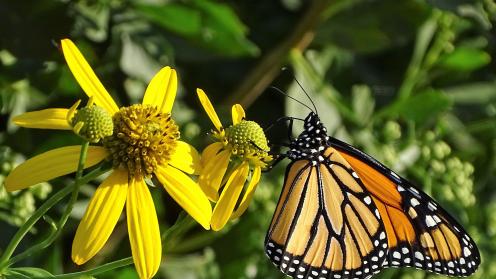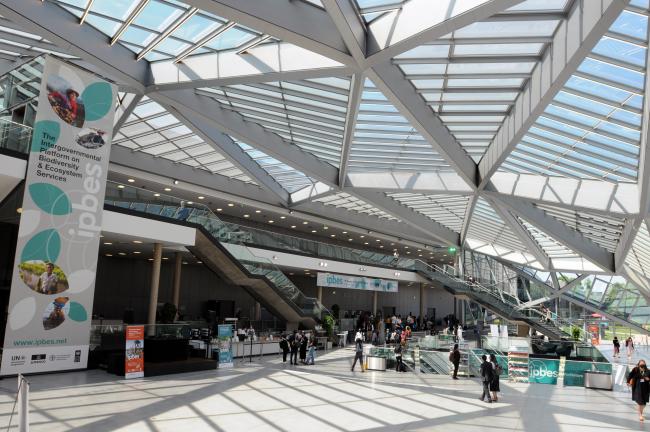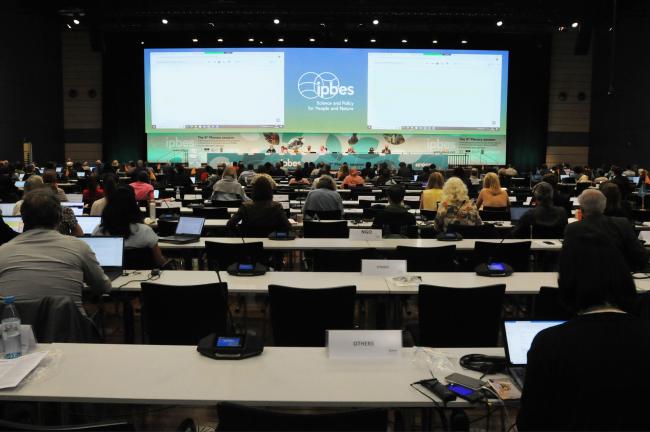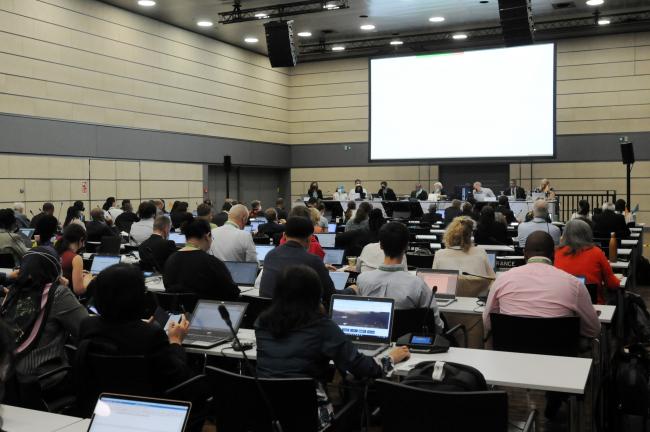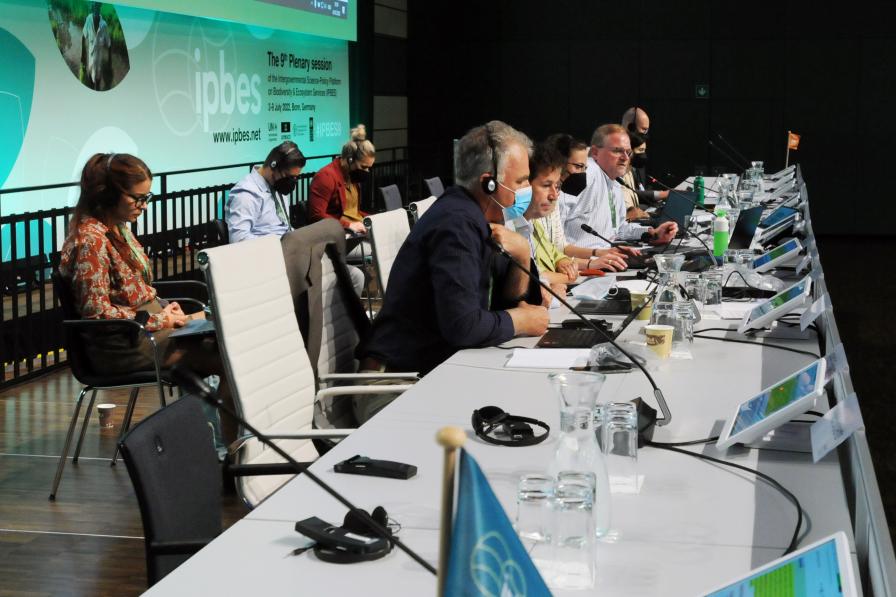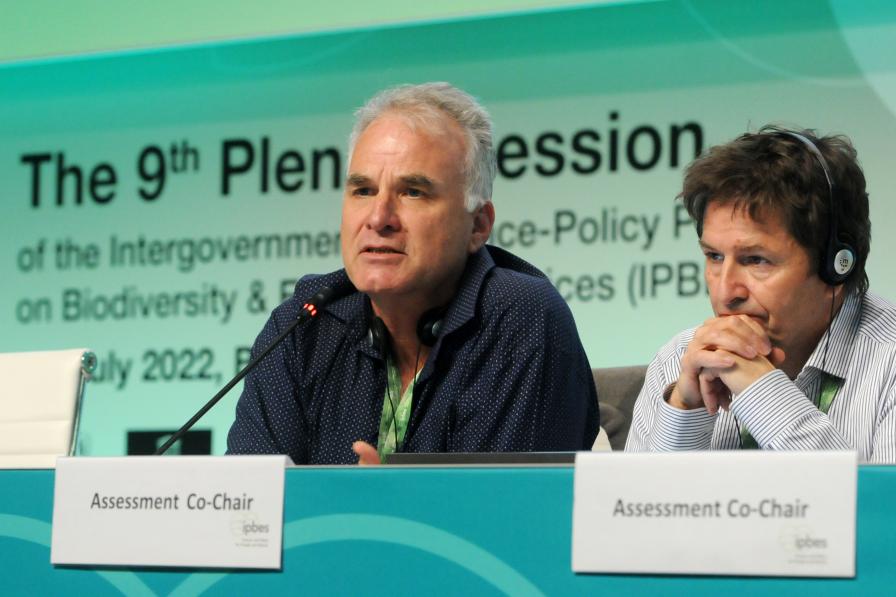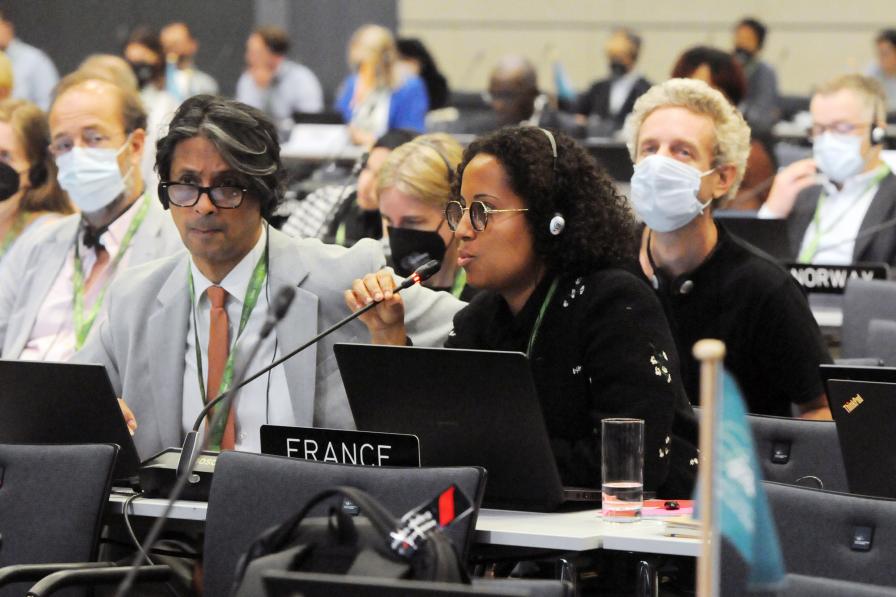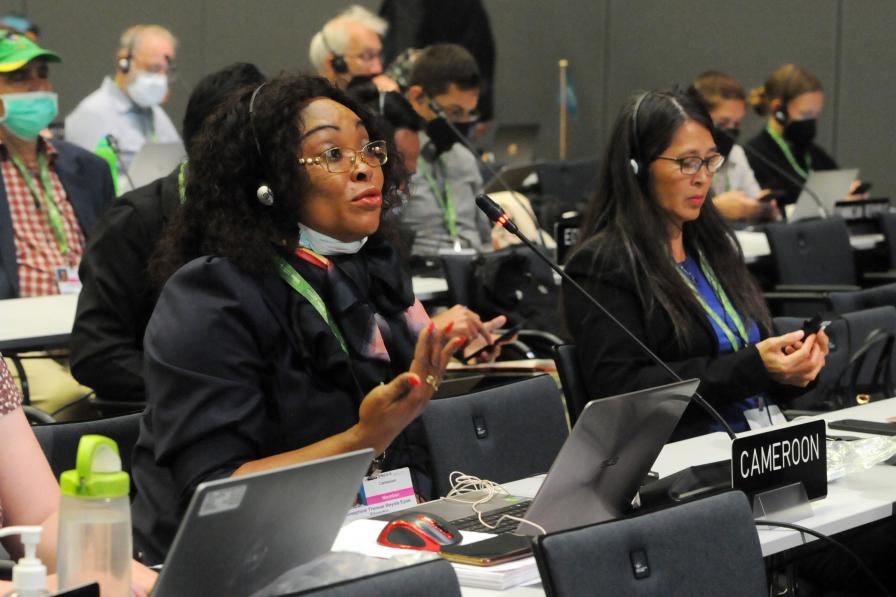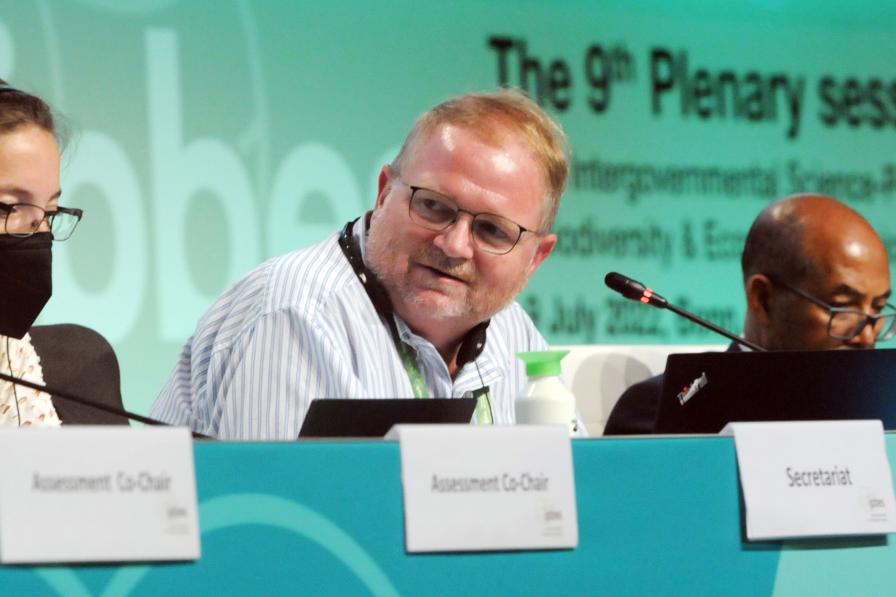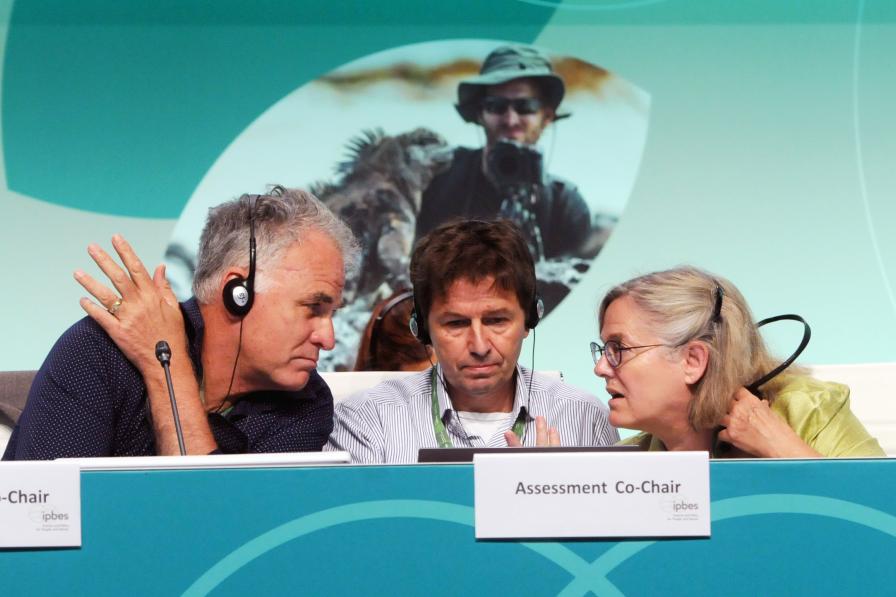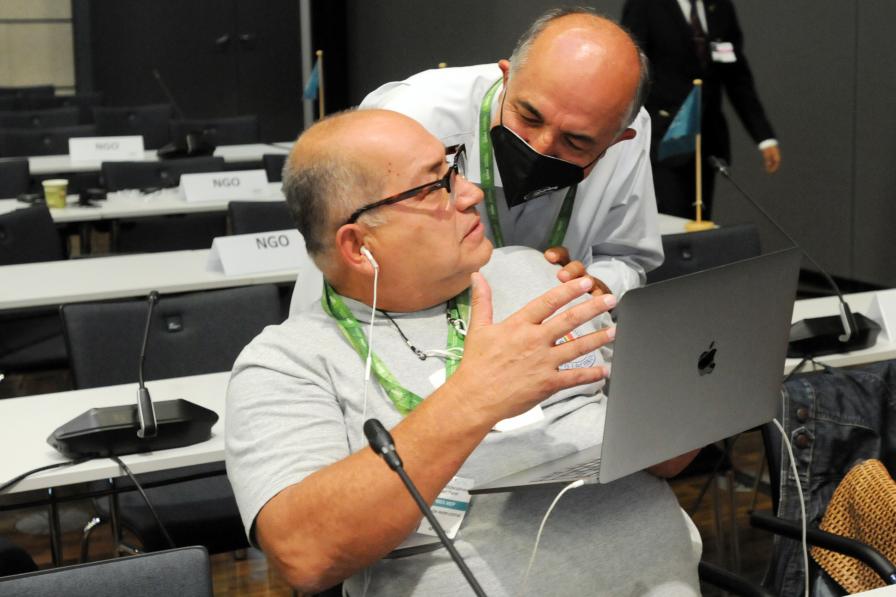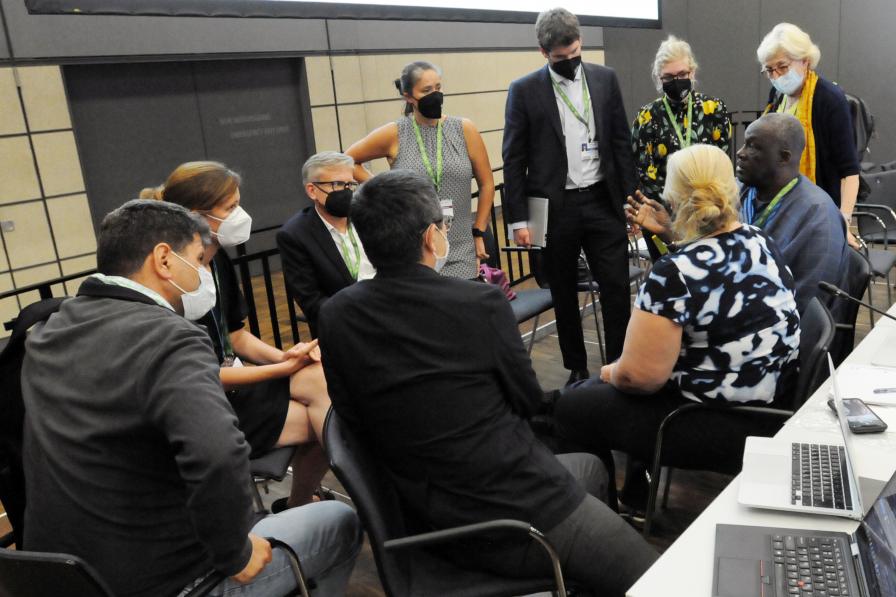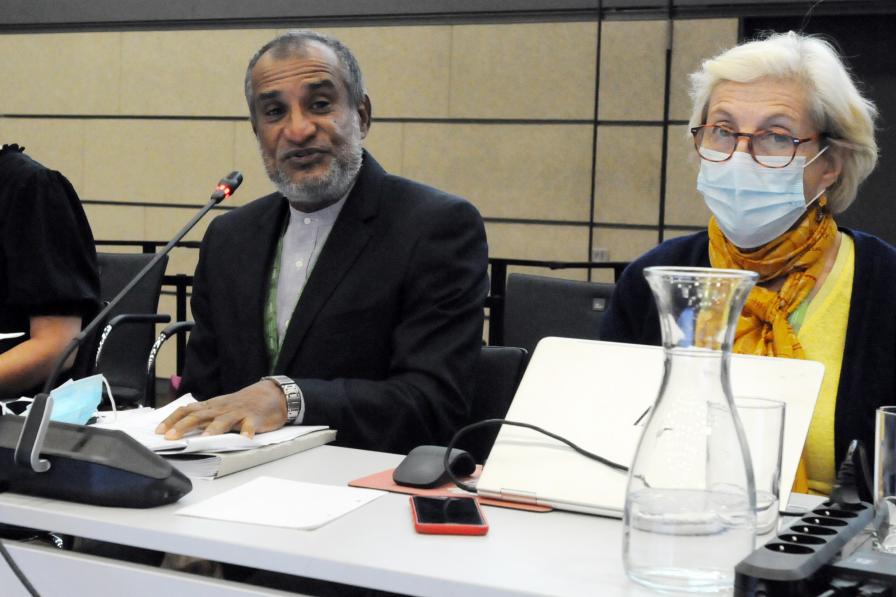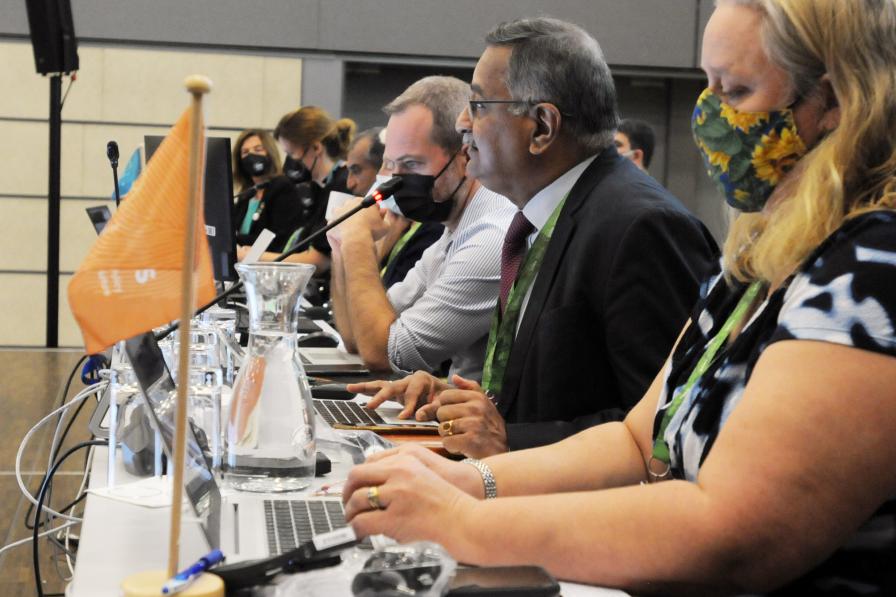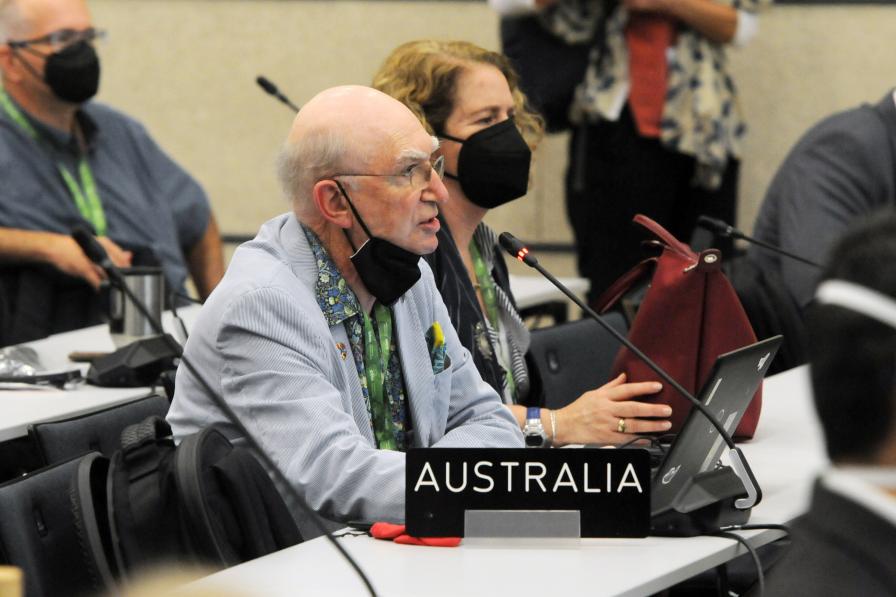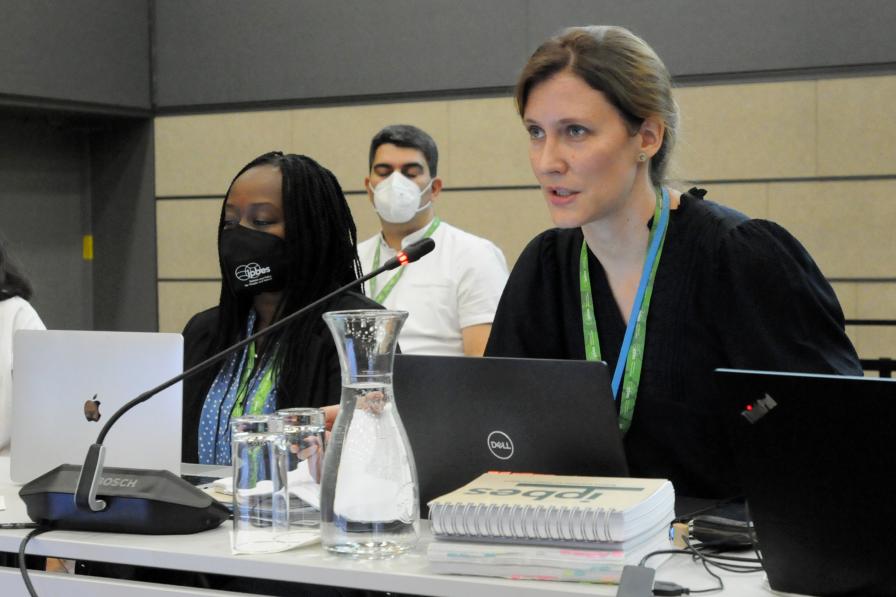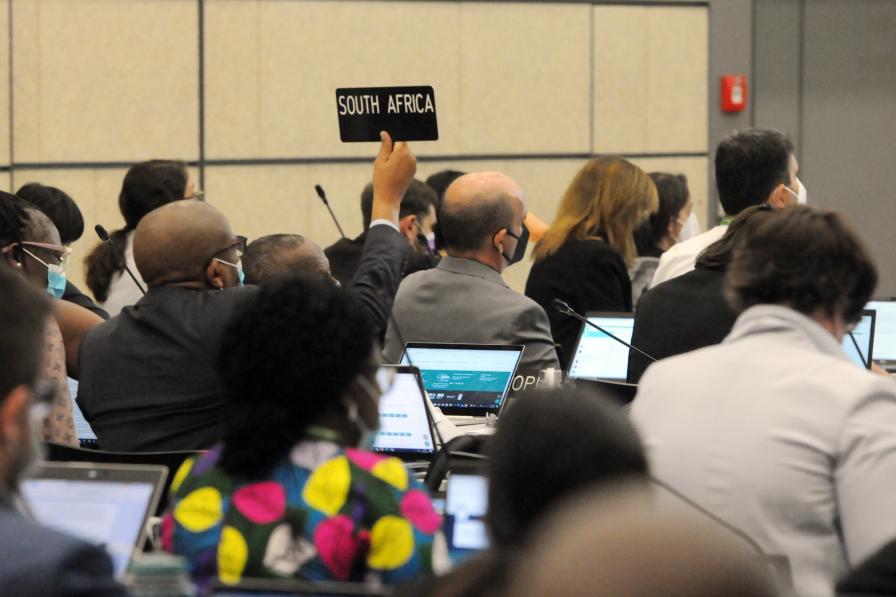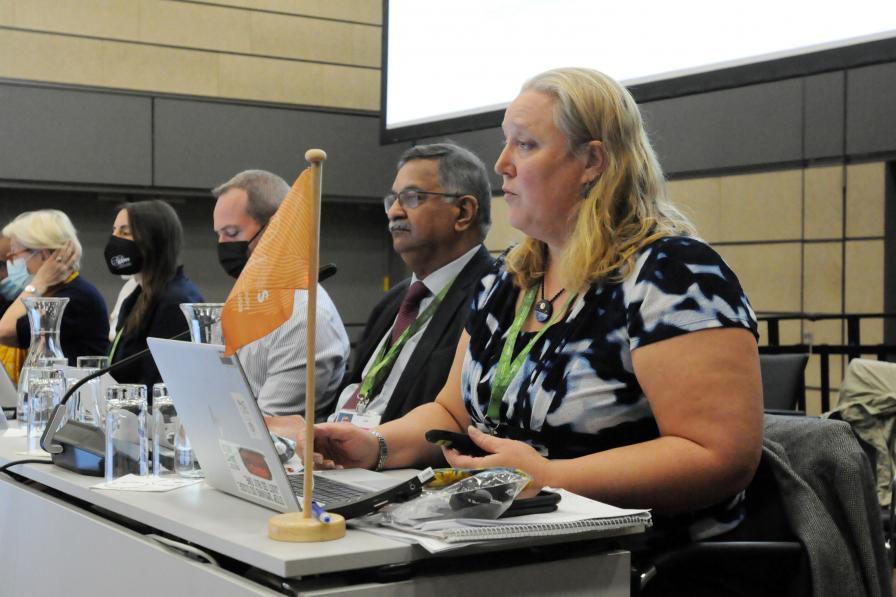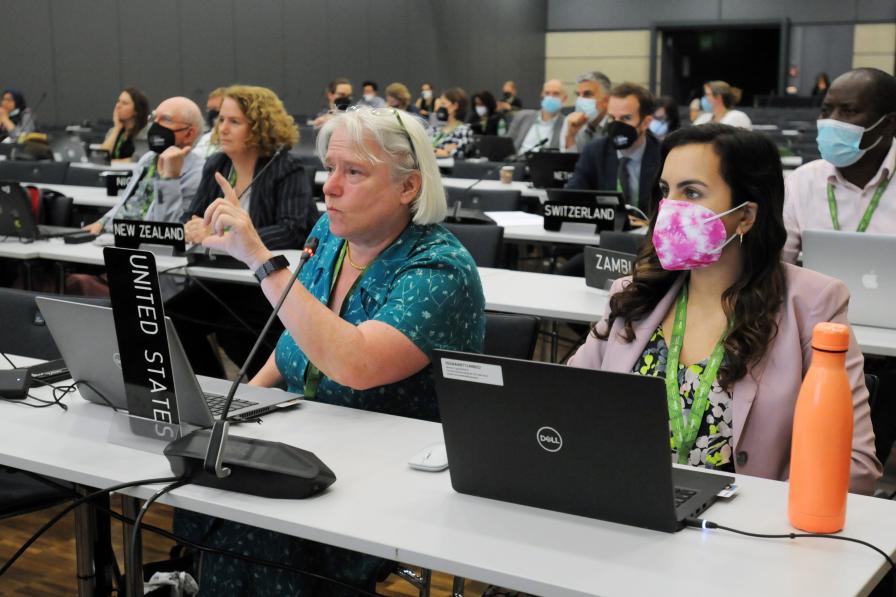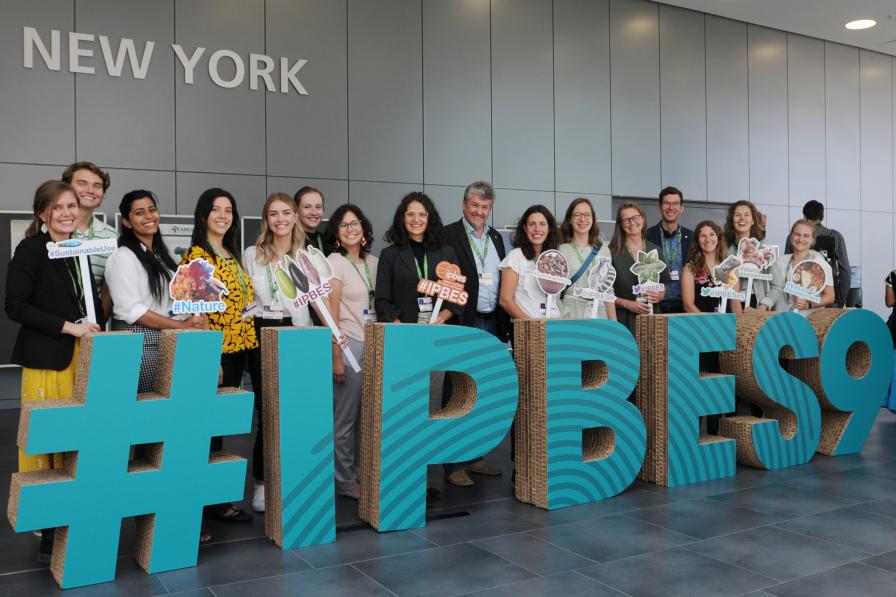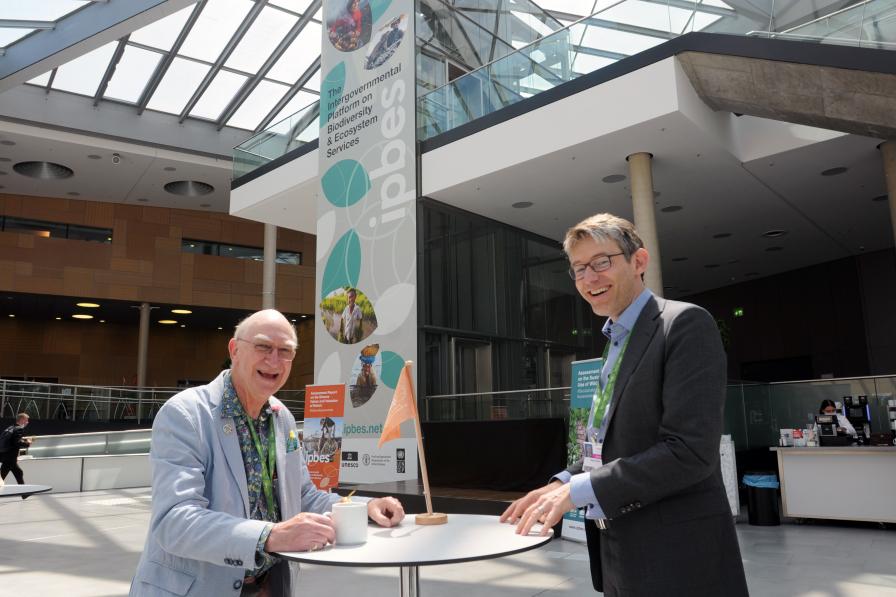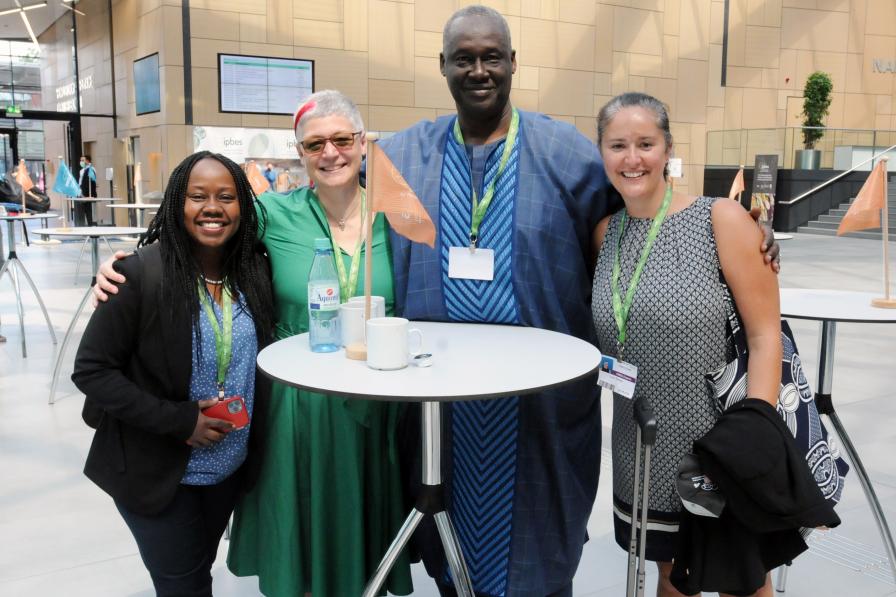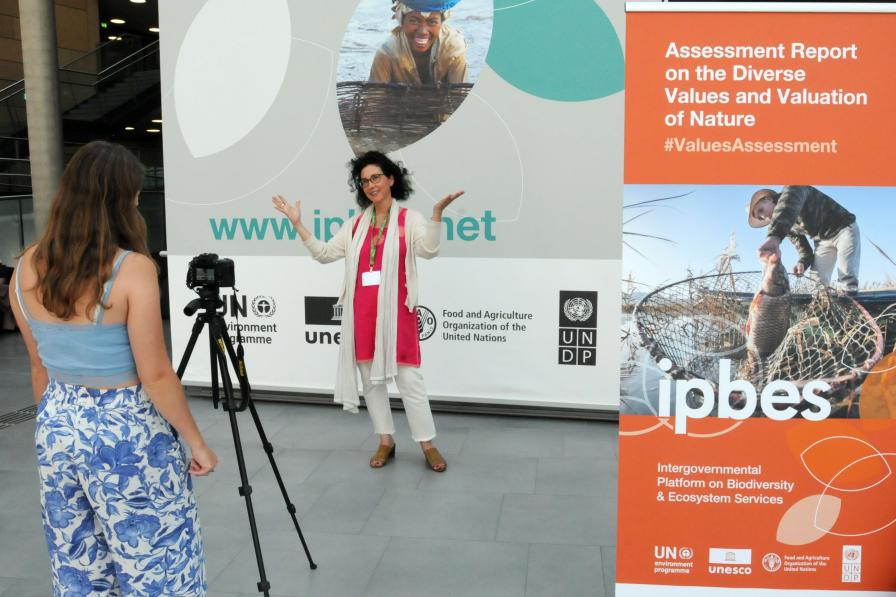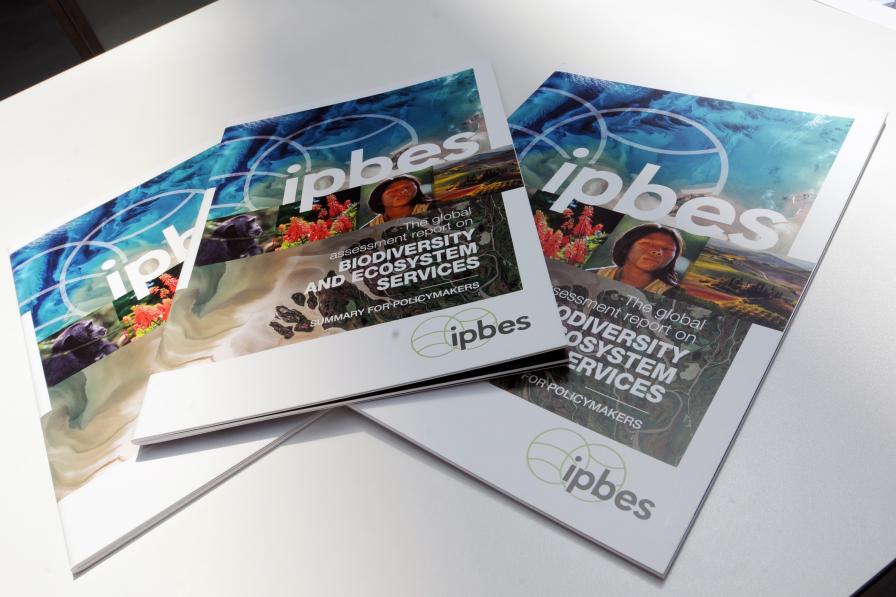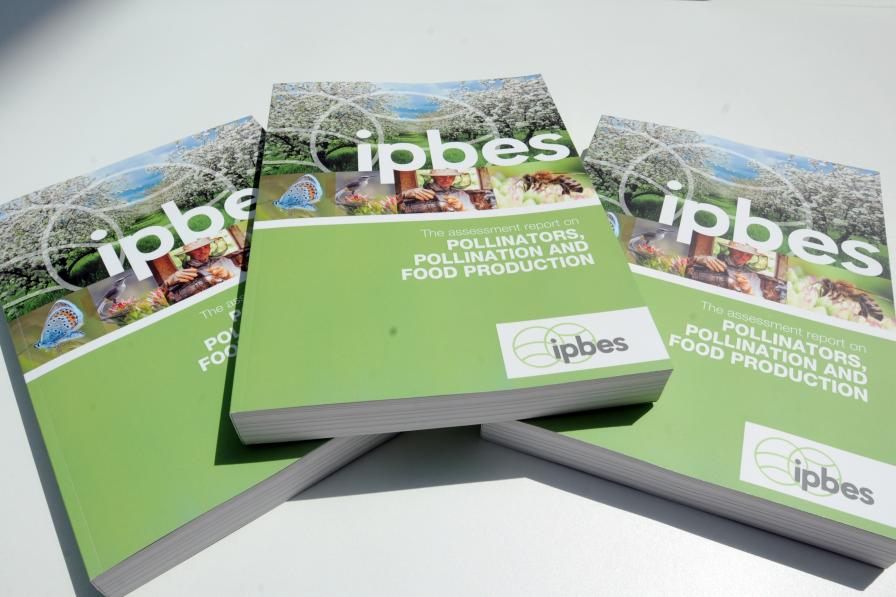Scientific data has been providing irrefutable evidence of the urgent need to tackle the biodiversity crisis for many decades. However, as some participants at IPBES-9 noted during the day, international biodiversity governance across all biodiversity-related processes has been failing to keep pace, and deliver the key actions and initiatives for the necessary transformational change in human societies and activities.
This systemic challenge should be expected, according to some delegates. After all, agreeing on a joint platform to address all the diverse drivers of biodiversity loss is a herculean task, taking into consideration the diversity of national interests and priorities. Notwithstanding this fact, during the second day of deliberations at IPBES-9 it was difficult to ignore that the slow negotiating pace surfaced once more.
To dive deeper, read the full Earth Negotiations Bulletin daily report.
Delegates spent the day in two working groups. The first, mandated to discuss the summary for policymakers of the thematic assessment on the sustainable use of wild species, started textual negotiations in the morning, after listening to general statements on the assessment. The atmosphere was cordial and the discussions productive, but the pace was very slow in the beginning and remained on the slow side even after speeding up deliberations following relevant encouragement from delegates and the podium.
Co-Chair Beard reminded participants, during the morning session, that it is the 4th of July and expressed his hope that he would be able to enjoy “an apple pie and maybe some fireworks somewhere in Bonn” in the evening, following an efficient session. This expectation soon proved overly optimistic as lengthy textual discussions ensued and it was obvious that a night session would be difficult to avoid.
During the two scheduled sessions, delegates were able to discuss the introductory part and key messages reflecting that sustainable use of wild species is critical for people and nature. The latter was one of twelve sub-sections in the document. Discussions continued into the night and the pace picked up significantly, allowing optimism, among tired delegates, that the work can finish on time, and the assessment can be forwarded to plenary for final approval.
Working Group 2 also had to add an extra session in the evening following steady but slow progress during the day. The morning jokes of Co-Chair Floyd Homer that an evening session may be needed were followed by the realization that “if we don’t speed up, we may be here until 6:00 am.”
In the morning, delegates listened to reports on the task forces’ work on: capacity building; knowledge and data; Indigenous and local knowledge (ILK); policy tools and methodologies; and scenarios and models.
Delegates then considered the deliverables under objectives 2, 3, and 4 of the rolling work programme up to 2030 and the work plans for the intersessional period 2022-2023 for the five IPBES task forces.
On building capacity, the discussion focused on, inter alia: exploring opportunities to support potential communities of practice in upcoming assessments; including regional engagements to support policy uptake; and enhancing collaboration with relevant multilateral environmental agreements.
Members further addressed catalyzing knowledge generation and data management from the morning into the afternoon session. On data management, they agreed on text regarding anticipating future knowledge needs. On ILK, participants considered and agreed on proposals to clarify the focus of and timelines for the review of the inclusion of ILK in IPBES functions and deliverables.
Extensive discussion took place from the afternoon into the evening on the foundations of the nature futures framework, which forms the basis for developing scenarios of positive futures for nature, to help inform assessments of policy options across multiple scales. Delegates reached consensus to include reference to “relevant MEAs and the sustainable development agenda.” They further agreed to simplify references of specific feedback processes that may need to be better integrated to improve existing scenario approaches. Discussions continued into the night.
All ENB photos are free to use with attribution. For photos from IPBES-9, please use: Photo by IISD/ENB | Diego Noguera.
To receive free coverage of global environmental events delivered to your inbox, subscribe to the ENB Update newsletter.
